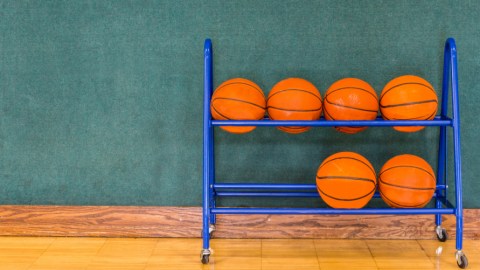Targeting Physical Education in Budget Cuts Is Shortsighted

What is the purpose of education? This is one of those deceptively simple questions with no easy answer. Do we send our kids to school so they can learn to be better people? Are they training to achieve academic success or striving to equip the extracurricular tools necessary to succeed in the real world? Do we want to develop young people who are free and independent or focus primarily on engendering qualities and values useful to society as a whole? Is education meant to promote egalitarianism? Is it meant to separate the capable from the less so?
The answer to this question is some sort of amorphous mixture of all the above. Yes, we want to train our students to strive for success. Yes, we want to equip them with life habits to serve them personally and society at large. Yes, we want to offer children the chance to make the best of themselves.
Why then do we so often find ourselves making education policy decisions that run contrary to the above goals? Some would argue that education has lost its soul and disproportionate focus has been placed on standardized testing and “making the grade.” Thus, when budget cuts are made a necessity (usually by politicians aware that fourth graders don’t vote), the first items to be slashed are always the ones that cannot be quantified into a test grade: art, music, and physical education.
In a piece that ran this week at NPR, Dr. Gregory D. Myer, one of the authors of a recent paper and commentary on children and exercise, detailed the current state of physical education in America. He explains how shortsighted it is to deviate focus from fitness and health, especially at ages when children are developing habits to guide them the rest of their lives. With obesity as dire a problem as it is today, it’s vital both for personal and societal reasons to maintain education policies that keep kids active. And just as intellectual education doesn’t end when the final bell rings, it’s also important for parents to recognize their role in making sure kids are thinking about fitness at home.
Check out the full article (linked again at the bottom of this article) for more information from Myer and NPR. For our purposes, the major takeaway here is that just because something is unquantifiable under our current mode of values analysis doesn’t mean it is without value. On the contrary, perhaps we should think about whether it’s the current mode of values analysis that’s really suspect.
In the video below, Stratus Prep CEO Shawn O’Connor explains why standardized tests are important while decrying some of the common myths that have arisen as their popularity has grown.
Read more at NPR.
Photo credit: Denise Lett / Shutterstock





